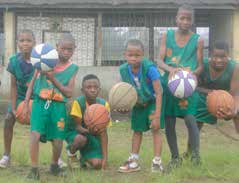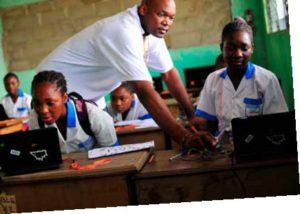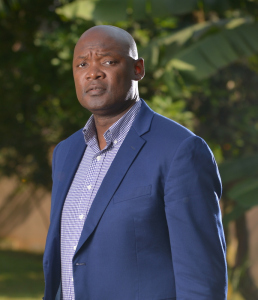To say Didier Socka (’02) was a fish out of water when he arrived at SCC would be an understatement.
He was in a foreign land 6,500 miles from home and spoke zero English. However, he knew how to play basketball. So he started there.
Growing up in Cameroon, Socka loved watching Michael Jordan, Scottie Pippen, and Hakeem Olajuwon. He knew prospects for a better life were far greater if he could get to America. After arriving in 1999, he caught the attention of Blackhawk assistant basketball coach Mike Score who offered him a scholarship to come to
SCC.
“It was my first time living without my family. Everything – the weather, culture, food, technology, language – was so intimidating,” Socka says. “Just trying to get past the language barrier every day drained all my energy.”
Socka had to catch up to his fellow American students. They were so far ahead. Undeterred, he threw himself into a daily routine of class, homework, practice, sleep.
While Socka was a redshirt and ineligible to play, he felt at home on the team. That year the Blackhawks won the national tournament.
“SCC was the most memorable time of my life,” recalls Socka. “My years there were unbelievable. Coach O’Brien was such an inspirational leader. My host family was so welcoming. I learned a lot about myself.”
Fast forward 15 years. Socka, now fully adjusted and living a comfortable life in Washington, D.C., took a trip back to Cameroon. The disparity he remembered from long ago was brought back into sharp focus.
“The digital divide between students in Cameroon and America is even greater,” Socka explains. “We take technology for granted, whereas in my country access is still severely limited. Some kids only see computers on TV.”
Aware of his own struggles, Socka knew that for kids to compete in the world, they have to learn to be tech savvy while they’re young. He had to do something about it. But what?
He knew how to play basketball. So he started there.
Regardless of location or culture, kids love to play. He would use basketball to get them to learn. After an early success bringing computers from the US to Cameroon, he started the Manengouba Foundation to develop and implement sustainable education programs and technology solutions to support schools in Cameroon.
“We refurbish computers donated by American companies and package them with a basic digital literacy program,” Socka explains. “We train the teachers so they can add it to their curriculum. To keep students interested and excited, we integrate it with an after school basketball skills program.
The year-long program starts with a basketball camp where kids learn teamwork and develop buy-in to the program. After one month, they incorporate computer lessons where students learn keyboarding, email, and spreadsheets. Each day ends with more basketball.
At a deeper level, the program provides much-needed hope helping students develop responsibility and self-worth.

Socka launched his first full-scale program at a school in Nkongsamba in rural Cameroon in January 2019. Eight months later, he organized the first basketball camp expecting 50 kids. Close to 100 kids from surrounding
villages showed up, and the team scrambled to bump the original number of participants from 60.
“We’re preparing for 100 students when we start up again in February,” he says. While still somewhat early, the program is showing results.
“Once we get kids in front of a computer, they’re excited to learn how to use it,” Socka reports. “The basketball is a bonus.”
Reflecting on how far he’s come personally and with the program, Socka says it boils down to being a good human.
“If I have an opportunity to do good for others, why not do it? I need to give back as much as I can.”
To learn more about Didier Socka’s work with the Manengouba Foundation, follow him on Facebook, Instagram, and Twitter @manengouba or visit www.manengouba.org.


